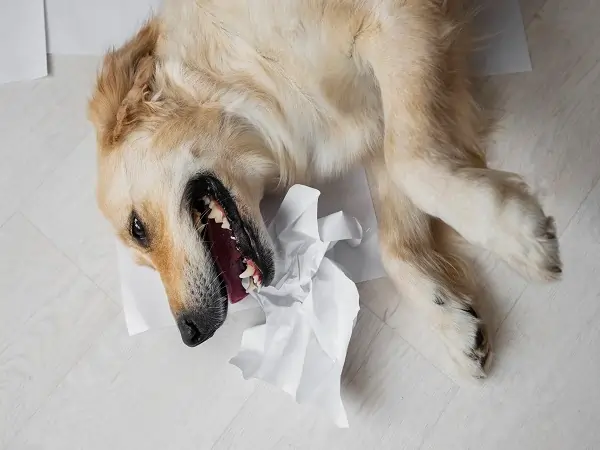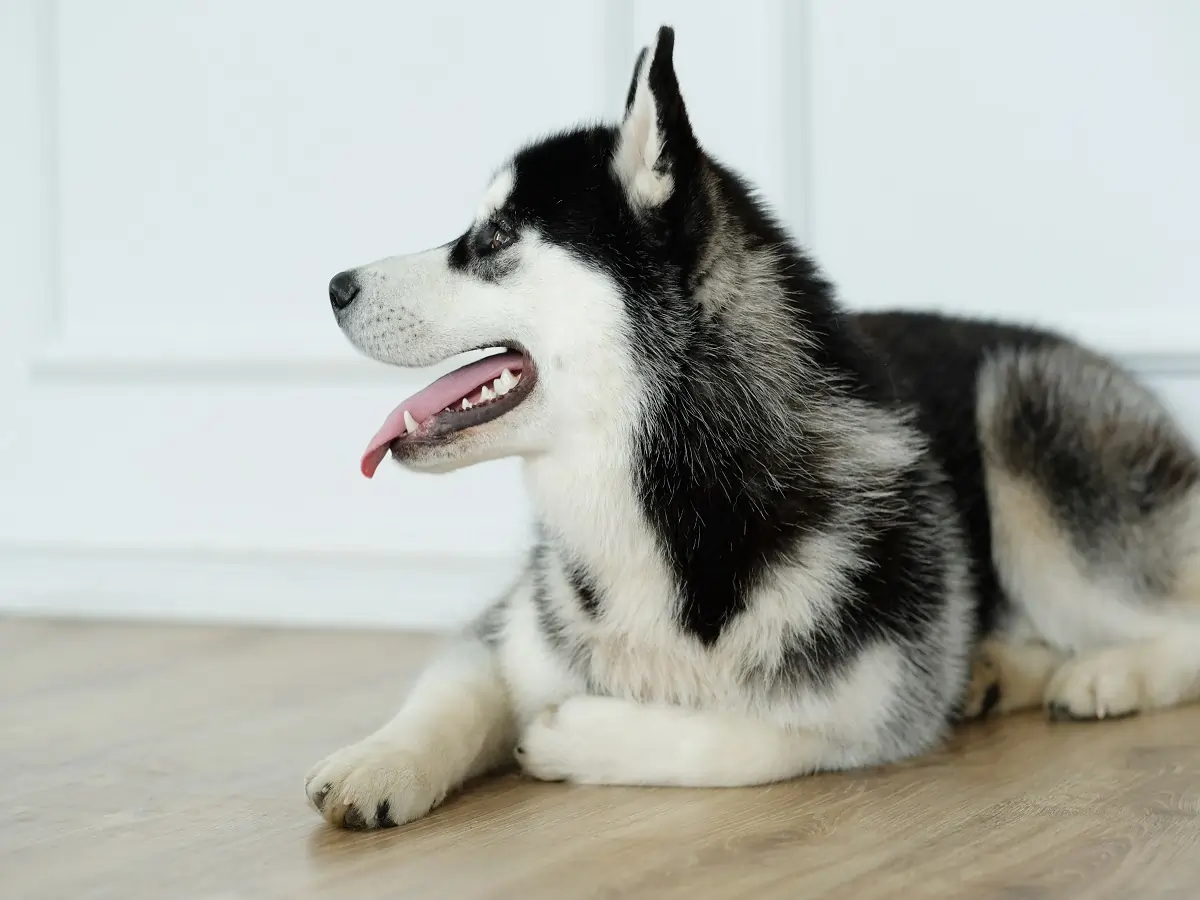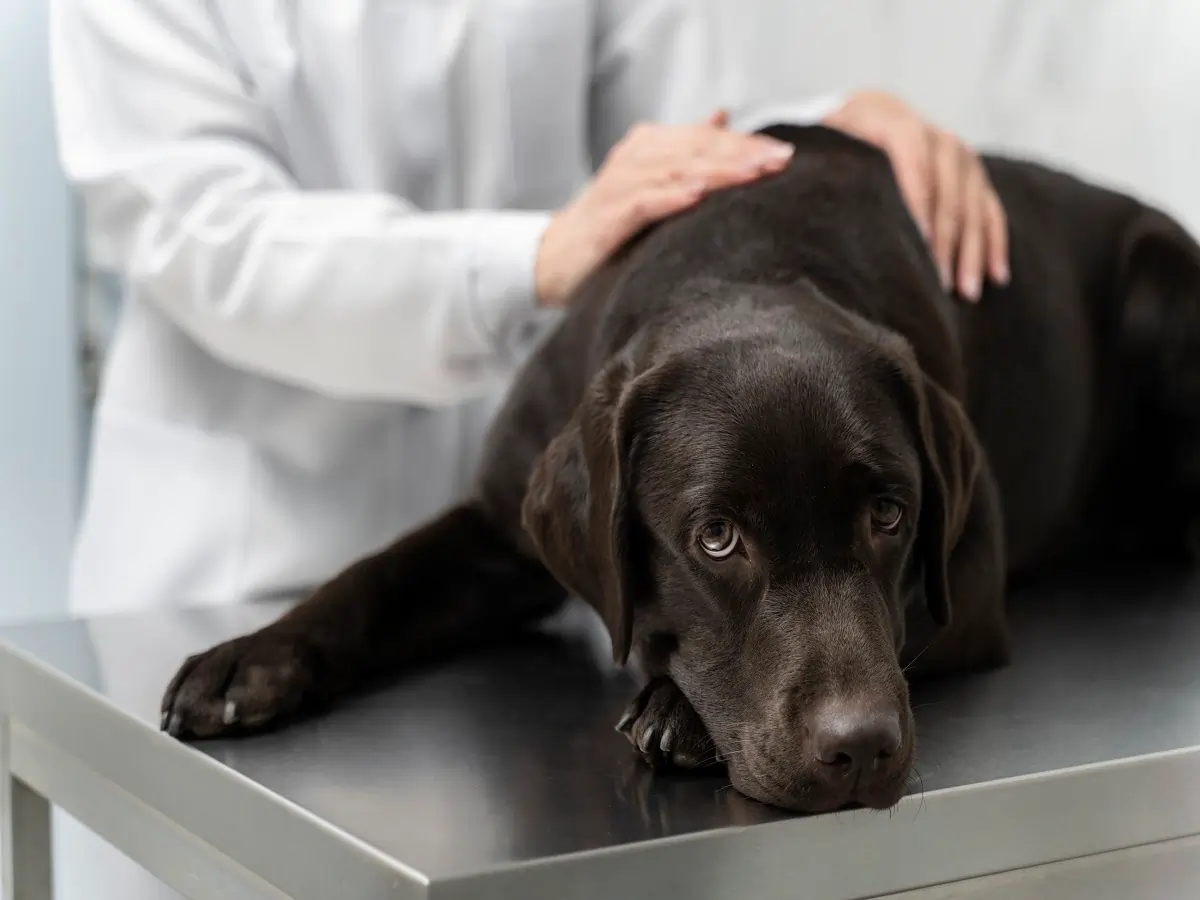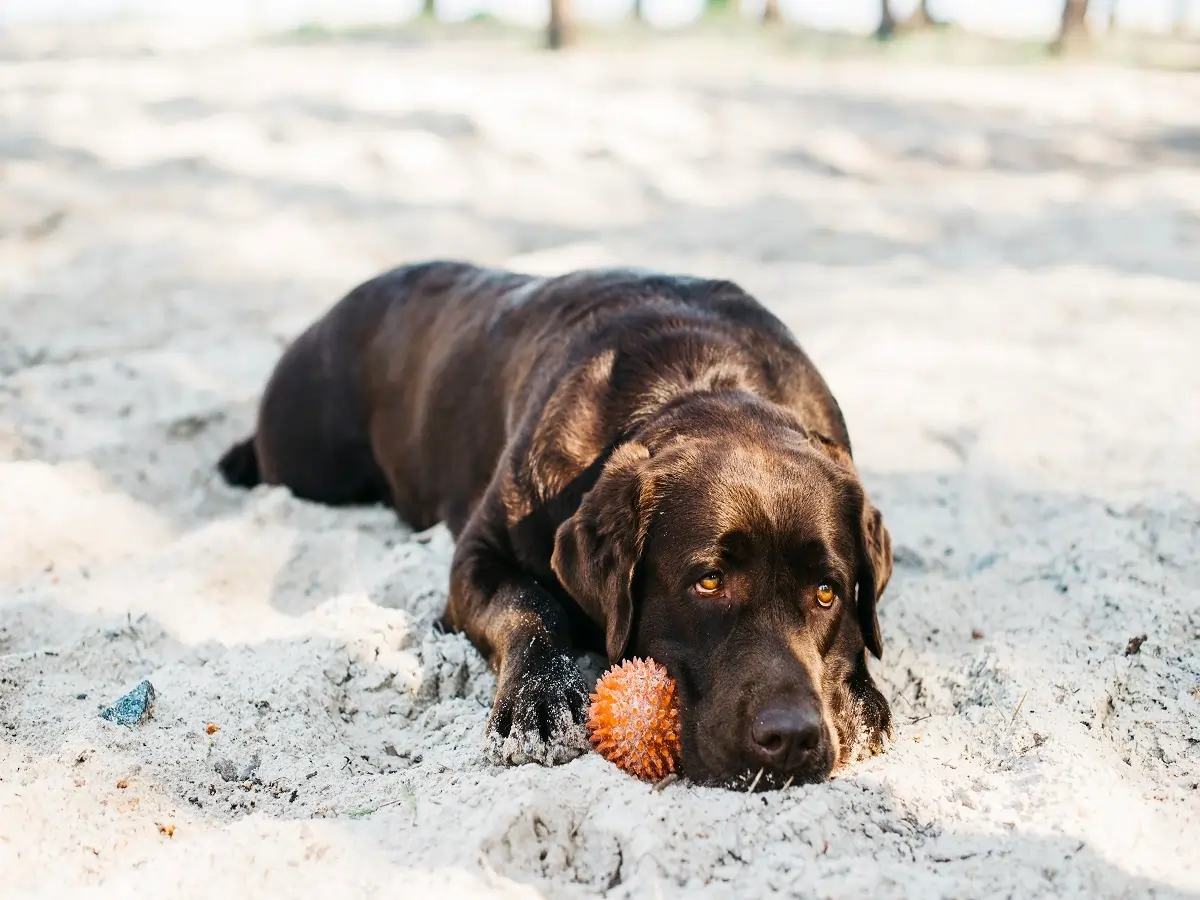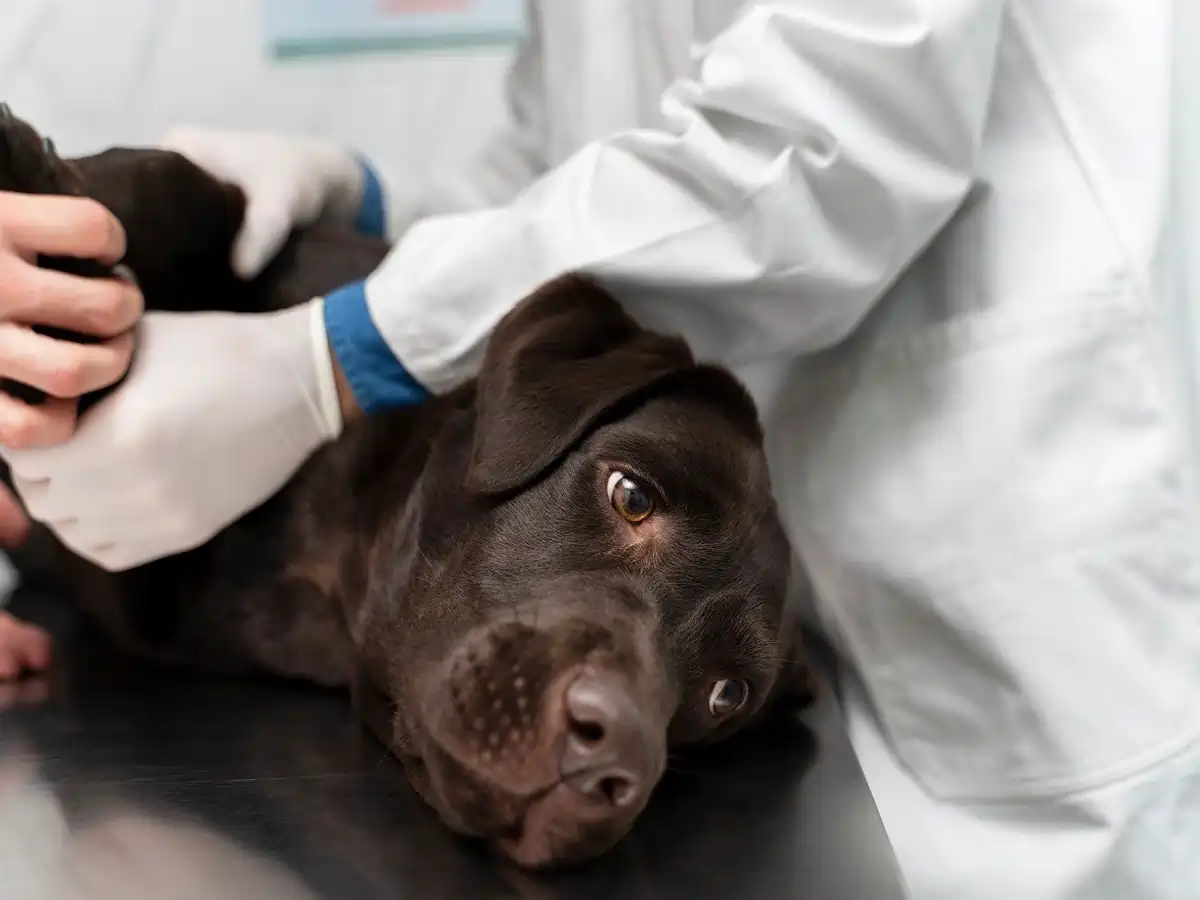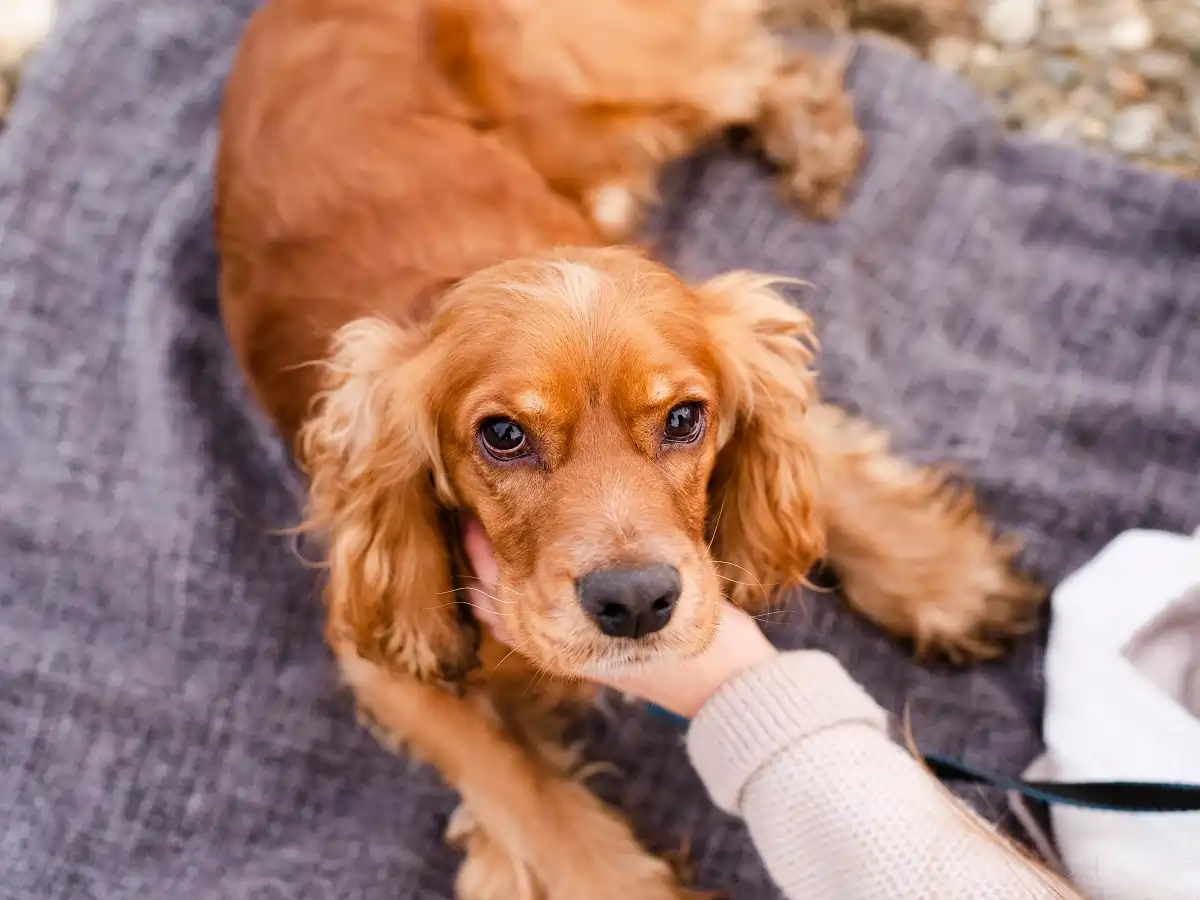If you have ever seen your dog panting at night, you might wonder if it is a problem. Panting is normal for dogs. But it can sometimes mean there is an issue, especially if it happens a lot at night. Knowing why your dog pants can help keep them healthy and happy.
Panting can be a simple response to things like temperature or it can be a sign of something more serious. Dog owners should understand the different reasons why their dogs might pant at night. These reasons can include being too hot, feeling anxious, having health problems, or even something related to their diet.
In this blog, we will look at the common reasons dogs pant at night and give you practical tips to help solve this issue. By the end, you will know more about why your dog might be panting and when to see a vet. Let’s make sure your dog gets good sleep and stays healthy.
Table of Contents
ToggleWhat is Panting in Dogs?
Panting is a normal and important behaviour in dogs. Unlike people, dogs don’t sweat through their skin to cool down. Instead, they pant to stay cool. When a dog pants, it takes quick, short breaths with its mouth open. This helps moisture from the tongue and mouth to evaporate, which cools the dog’s body.
Normal Panting
Dogs usually pant after exercise, excitement, or when it is hot. This kind of panting is steady and rhythmic. It slows down once the dog cools off. In these cases, panting is healthy and expected.
Excessive Panting
Excessive panting is different and might be a sign of a problem. This type of panting happens more often or more intensely than normal and might not be related to heat or exercise. It can be a sign of issues like anxiety, pain, or health problems. Excessive panting might come with other symptoms like restlessness, drooling, coughing, or changes in behaviour.
Knowing the difference between normal and excessive panting is important for dog owners. While normal panting helps dogs cool down, excessive panting can mean something is wrong and might need a vet’s attention.
8 Common Reasons for Nighttime Panting in Dogs
There are several common reasons why dogs might pant at night. One main reason is to cool down when they get too hot. Anxiety and stress can also cause panting, especially if there are changes in routine, loud noises, or if the dog is lonely. Pain or discomfort from things like arthritis or injuries can make dogs pant too. Health problems like heart disease, breathing issues, and Cushing’s disease can also lead to extra panting. Other reasons include recent exercise, diet and water problems, being overweight, age-related changes, and side effects from medication. Understanding these reasons can help you find the right solution. Let’s look at these causes in detail.
1. Temperature Regulation
Dogs naturally pant to help control their body temperature. While it is normal for them to pant to cool down after playing or when it is hot. But panting a lot at night might mean something is wrong. Dogs keep themselves cool mainly by panting, which helps them get rid of extra heat. When dogs pant, moisture from their mouth and tongue evaporates, taking heat away from their bodies. This helps them cool down when they are too hot, either from the weather or from running around.
Dogs might also look for cooler spots, like shade or cool surfaces, to help them cool off. Some dogs, especially those with short noses, might have a harder time staying cool because of how they are built, which makes them pant more. It is important for dog owners to know the signs of overheating, like panting a lot, drooling, fast heartbeat, feeling tired, weak, or even collapsing. This helps keep their pets safe, especially on warm nights.
2. Anxiety and Stress
Dogs can pant a lot at night because they feel anxious or stressed. This can happen for different reasons, like being alone for a long time, loud noises, or changes in their routine. When dogs are anxious, they might pace, whine, or pant. Loud sounds, like thunder or fireworks, can make dogs scared and pant more. Even changes in their home or new family members or pets can stress them out.
Panting is a sign that a dog is anxious, and they might also seem restless, shake, drool, or need extra attention from their owners. Understanding what makes dogs anxious and noticing these signs helps owners support their pets and make sure they feel better, leading to a calmer night’s sleep.
3. Pain and Discomfort
Dogs might pant a lot at night because they are in pain or feel uncomfortable. This can signal health problems that need attention. Pain can come from different sources, like arthritis, injuries, or stomach issues. If you notice your dog panting at night, watch for signs of pain, like limping, not wanting to move, changes in eating, or sounds of discomfort. Also, pay attention to how your dog acts when touched or moving. If you think pain might be causing your dog to pant at night, it is important to see a vet. They can figure out what is wrong and how to help your dog feel better so they can sleep well.
4. Recent Exercise
When dogs do a lot of exercise before bedtime, they might pant more at night. This happens because exercising makes their body warmer and their heart beat faster, so they pant to cool down. Sometimes, exercising too hard can make their muscles sore, which makes them even more uncomfortable when they are trying to rest. To help with nighttime panting after exercise.
It is best to avoid doing vigorous activities right before bedtime. Instead, take your dog for gentle walks or play earlier in the day. This gives them enough time to cool down and relax before going to bed. Also, make sure they have a comfy and quiet place to sleep after exercising. Following these tips can reduce how much your dog pants at night after exercise and help them have a better sleep.
5. Diet and Hydration
What your dog eats and drinks can affect how much they pant at night. Giving them good food with lots of water helps their body work well, including keeping their temperature normal. If they don’t drink enough, they might get dehydrated, which can make them pant more. Signs of dehydration include dry gums, sunken eyes, and being tired.
To keep your dog from getting dehydrated and panting a lot at night, make sure they always have fresh water, especially when it is hot or after they have been active. Also, feed them a balanced diet to keep them healthy. If you see signs of dehydration or they pant too much despite having enough water, talk to a vet. They can help figure out what is going on and suggest changes to their diet or hydration routine.
6. Obesity
Being overweight can make a dog breathe harder and pant more at night. The extra weight puts pressure on their breathing, especially when they are active or resting. So, chubby dogs might pant more while sleeping. To help your dog lose weight and stop them from panting at night, you can do a few things. First, talk to a vet to make a plan based on your dog’s age, breed, and health. They might suggest feeding them less food and fewer treats. Also, try to get your dog moving more by taking them for walks or playing with them.
Keep an eye on their progress and adjust things as needed. This can help your dog lose weight and breathe easier at night.
7. Respiratory Issues
Some dogs have trouble breathing at night, especially those with flat faces and short noses. This can be due to problems like narrow airways or a long soft palate. These issues make it hard for them to breathe properly, especially when they are tired or stressed. Because of this, these dogs might pant more at night. Other breathing problems like a collapsing windpipe or a paralyzed voice box can also cause nighttime panting.
To help these dogs breathe better at night, it is important to work with a vet to make a plan. This might include changing their lifestyle, like avoiding things that make breathing hard, keeping them at a healthy weight, and making sure they have a comfy place to sleep. In serious cases, surgery might be needed to fix their breathing problems and help them pant less at night.
8. Age-Related Changes
As dogs get older, they might have trouble breathing at night. This happens because their breathing muscles weaken, and their lungs don’t work as well. Health issues like arthritis or heart problems can make it harder for them to breathe, especially when they are resting. To help older dogs breathe better at night, it is important to take care of their health. Regular vet check-ups can catch problems early.
Keeping them at a healthy weight with good food and exercise can also help them breathe easier. Making sure they have a comfy place to sleep with fresh air can help them rest better and pant less at night. By taking care of older dogs and treating any health issues, you can help them have a peaceful night’s sleep.
When to Worry: Signs You Need to See a Vet
Knowing when to take your dog to the vet for nighttime panting is really important for keeping them healthy. There are some signs that show the panting might be a problem and need a vet visit. If your dog pants a lot at night without any clear reasons like being hot or active, it could mean they have a medical issue. Other signs to watch out for are panting along with coughing, trouble breathing, being tired all the time, not eating, throwing up, having diarrhoea, or acting differently.
If your dog seems uncomfortable or in pain while panting at night, it is best to see the vet right away. These signs could mean serious problems like breathing issues, heart disease, pain, anxiety, or other health issues that need a vet’s care. Trust your instincts and don’t hesitate to get help if you are worried about your dog’s nighttime panting. If you are not sure, it is always okay to ask a vet for advice to make sure your dog gets the right care.
Tips to Help Reduce Nighttime Panting
If your dog pants a lot at night, here are some simple ways to help:
- Provide a Comfortable Sleeping Environment: Make sure your dog has a cozy, quiet place to sleep, away from noise and distractions.
- Maintain a Cool Temperature: Keep their sleeping area cool, especially in hot weather, so they don’t get too hot.
- Limit Evening Exercise: Don’t play too hard with your pup right before bedtime. Let them cool down and relax first. As a dog owner, I have learned that avoiding hard play before bedtime can help stop nighttime panting. Instead, try gentle activities earlier in the day. This gives your dog time to relax and cool down before going to sleep. I have seen this work with my own dog. They seem calmer at night, and we both get better sleep.
- Manage Anxiety and Stress: If your dog seems worried or stressed, try to figure out what is bothering them and find ways to help, like training or special supplements your vet suggests.
- Promote Weight Management: Help your dog stay at a healthy weight by feeding them right and giving them enough exercise. That way, it is easier for them to breathe.
- Hydration: Always make sure your dog has plenty of fresh water, especially when it is warm out.
- Regular Veterinary Check-ups: Take your dog to the vet regularly to make sure they are healthy and to check if there is anything causing the panting.
- Create a Relaxing Routine: Set up a bedtime routine that helps your dog relax and get ready for sleep.
- Consider Cooling Solutions: If it is hot, try giving your dog a cool mat or a fan to keep them comfortable.
- Seek Professional Advice: If your dog keeps panting at night no matter what you do, talk to your vet. They can help figure out what is going on and how to fix it.
Final Words
In conclusion, knowing why your dog pants at night is crucial for their health. We have talked about reasons like hot weather, anxiety, pain, health issues, and lifestyle. By understanding these causes and doing simple things like making a comfy sleeping spot, managing anxiety, watching their weight, and getting vet help when needed, you can ease your dog’s nighttime panting. If you see a lot of panting or other worrying signs, talk to your vet. Your dog’s health matters most, and with good care, they can have a happy, peaceful sleep.

